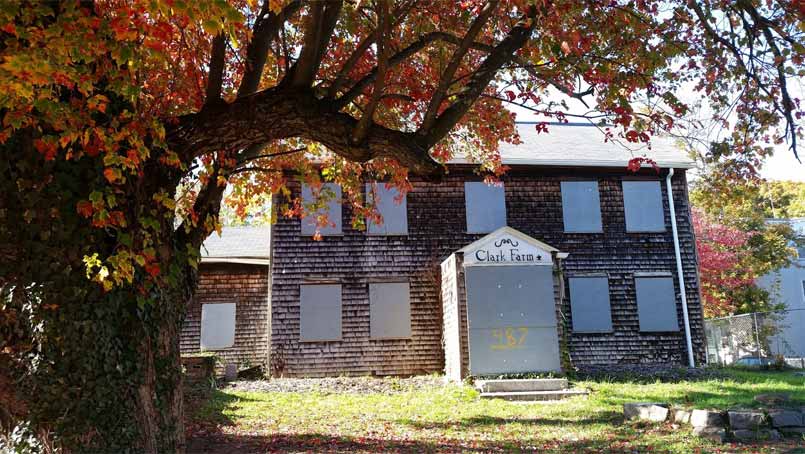
February 5, 2016 Tracing History through Spoken Word: Brandeis Students Begin Oral History Project on the Fowler Clark Epstein Farm
With buildings dating to the early 1800s, the Fowler Clark Epstein Farm (FCE Farm) itself is testimony to the agrarian history of Mattapan. The more recent history of Mattapan as an urban neighborhood is no less intriguing. In the 1960s, the neighborhood surrounding the farm transformed dramatically, as Jewish residents moved out, and African-American families moved in to Mattapan. Such transitions happened in many US cities during this time; in fact, in the fall of 1971, when Michigan senator Philip Hart convened three days of subcommittee hearings in Boston to investigate the causes and consequences of neighborhood transition in Mattapan, a subcommittee staff member told the New York Times that “We believe that the set of events in Boston illustrates what is going on all over America” (in Gamm 1999:13). The specifics of neighborhood change in Mattapan have been the subject of remarkable legislative and scholarly attention (Levine and Harmon 1992; Gamm 1999). However, problematically, very little scholarly attention has been paid to Mattapan in the years since it became a center of the African-American, Haitian, and Caribbean immigrant communities of Boston. As one community partner commented, there is “almost nothing written” about the history of people of color in the neighborhood. Related, we have been told that more recent popular narratives about the neighborhood tend to focus much more on its challenges than its many strengths.
Recognizing the power of this place for both former and current residents, as part of the revitalization of the FCE Farm, Historic Boston Inc. (HBI) and the Urban Farming Institute of Boston (UFI) are collaborating with Brandeis University professor Sara Shostak to develop a “public history” project focused on both the Farm and the neighborhood. Public history is a methodology for facilitating a “constructive dialogue between past and present” with the goal of bringing people together around “a shared civic vision” of their neighborhood (Hurley 2010: xxi). One of the central tools of public history projects are oral history interviews, which can then be used to create a “usable past” (Hurley 2010: 38); such narratives, in turn, may serve as the basis for ongoing community engagement about how place-based initiatives, such as the revitalization of the FCE Farm, can best serve the community.
As a first step in this project, Professor Shostak is working with seniors in the Health: Science, Society and Policy Program at Brandeis to conduct oral history interviews with twenty current and former residents, including 1) current neighbors of the Farm, who can speak to the recent history of the neighborhood and their hopes for the revitalization of this site; 2) leaders of community based organizations and coalitions working on issues of food, health, and community in the neighborhood, and 3) people who grew up in the neighborhood and then left with their families in the 1960s and 1970s, who have recently reconnected in online groups, such as “Friends of Mattapan and Dorchester,” and collaborated on a “cookbook” that serves as an archive of the old Jewish neighborhood’s culinary scene.Alongside these interviews, the Brandeis research team will be gathering archival documents, photographs, maps, city planning documents, and decades of news coverage of the neighborhood. All of these materials will be archived online and given to UFI in May 2016, so that UFI can use them in ongoing processes of community outreach and engagement.
At the heart of this project is the belief that food, community, and health are themes that we can explore with the wide variety of people who have called Mattapan home and who care about its future. The students some of whom also have family connections to Mattapan report being thrilled for the opportunity to learn more about what makes this community special- and how – the power of food and community can be leveraged to improve food access and support inclusive neighborhood development. If you have photos or documents you wish to share, or if you are interested in participating in an oral history interview, you may reach the research team at mattapanhistories@gmail.com.
Professor Sara Shostak is a professor of sociology at Brandeis University. She is leading a HSSP Capstone and will provide updates on the oral history project throughout the year.



